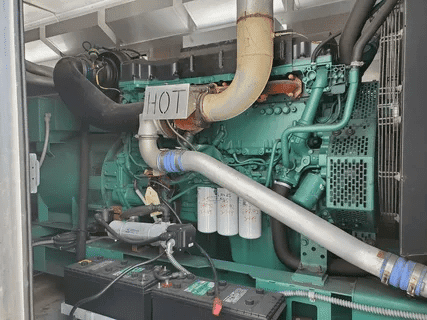Understanding Diesel Generator Life Expectancy
An average well maintained diesel generator has the life of 20-30,000 hours or even more. On average this comes up to 20-30 years of consumption. Such an amazing life span qualifies the use of diesel generators as a preferred alternative to supply backup power to businesses that need guarantees in this regard as well as where uninterrupted (=industrial) power supply is crucial.
The factors that determine how many years your diesel generator will last are not only many but also very important and they include the way you use your generator, how you maintain it, the environment and whether you have installed the right size or not. Being familiar with these factors, you will be able to make well-informed choices concerning your power generation investment and make sure that you receive maximum value of your equipment purchase.
Key Factors That Determine Your Diesel Generator’s Lifespan
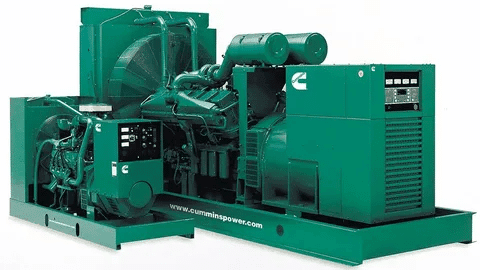
Usage Patterns and Operating Hours
The number of times and the degree to which your generator is used is the most influential determinant of its life. Diesel generators on average have a life span of between 10,000 and 30,000 hours. And, typically, this is 20-25 years of service. But this range is incredibly different according to the way it is used:
Standby Emergency Use: Another option is use of generators when there is power outage, these tend to last longer because they are not used as often as in a lifetime of the generator. With due maintenance these units can be operating reliably in 25-30 years.
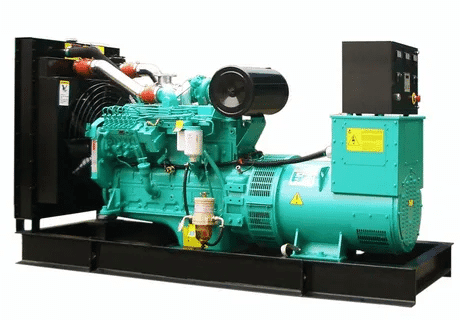
Constant Industrial Load: Generators used 24/7 in the industrial setting will have a shorter life span at continuous load however are at great value with proper care and under-sized.
Prime Power Applications: Units used as the primary source power in a remote location or in a construction project application are somewhere in-between emergency power and continuous duty.
Proper Sizing and Load Management
Another kind of misuse is improper sizing which reduces the life of a generator. When the generator is too small or too big to suit the job it has been doing it results in under work or overwork.
Too Small Generators: A generator that is undersized in respect to the load demand is continually operating strained thus resulting in a fast wear and early breakdown. Partitions overwork, burning up an inordinate amount of energy, and stressing.
Enlarged Generators: On the other hand, those generators that never work at optimal load experience the so called wet stacking of carbon deposits in the absence of combustion of the fuel. Such phenomenon lowers effectiveness and even leads to the long-term deterioration.
Optimal Load Range: A regular diesel generator functions most efficiently when it is loaded between 70-80 percent of the load, giving an optimum combination of efficiency and lifetime.
Environmental Conditions and Operating Environment
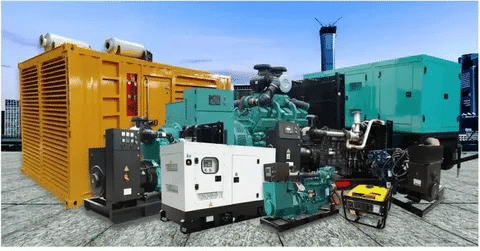
Environments in which your generator is working have a great influence on the life of the generator. The surrounding of the generator where it is used can influence its service span. Some of the environmental factors are important:
Temperature Extremes: Extreme levels of temperatures cause further stress to generators. Extreme heat conditions may lead to an overheating condition and extreme cold may influence the viscosity of the fuel and also battery performance.
Humidity and Moisture: This is dangerous as it may result in corrosion of the internal part as well as the electrical system due to excessive moisture. In humid conditions, good enclosures and ventilation is necessary.
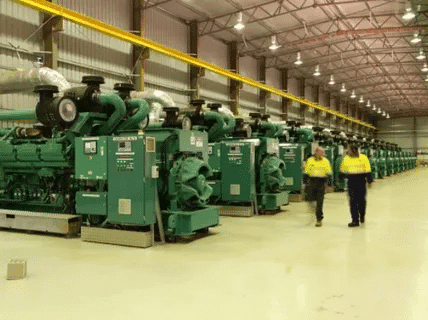
Dust and Debris: Dusty conditions may obstruct air filters and cooling systems, weaken the efficiency of the same and may lead to overheating. In such locations even more attention should be paid to regular clean-ups and filter replacements.
Altitude effects: Low density of the air at high altitudes affect the combustion efficiency and cool performance. At higher elevations generators must be derated.
The Critical Role of Maintenance in Generator Longevity

A diesel generator should be taken care of regularly in order to maximise its lifespan. This involves not only regular following of the procedures on checking and changing of oil, filters and coolant but also finding the time to schedule a professional service every year at least once.
Essential Routine Maintenance Tasks
Oil and Filter: Changing of the oil and fuel filters should be done regularly to ensure that the generator and all the other associated parts work very well. Failure to maintain it will lead to the breakdown of parts and break the entire system. As a general recommendation, it is recommended to change the oil before every 100 hours of use to keep the lubrication.
Exercise Runs: The system must be exercised regularly in the form of exercise runs that move the parts. Generators left unused over long durations experience higher friction and shock due to the rise of temperatures upon starting.
Coolant System Maintenance: Routine checks of coolants and replacement of coolants can ensure overheating and corrosions in the cooling system are avoided. To gain optimum performance out of a diesel generator, you will be required to consume superior fluids, including coolant and oil.
Battery Maintenance: Proper testing and maintenance of battery systems should be maintained to ascertain its reliability when it comes to starting in emergency situations.
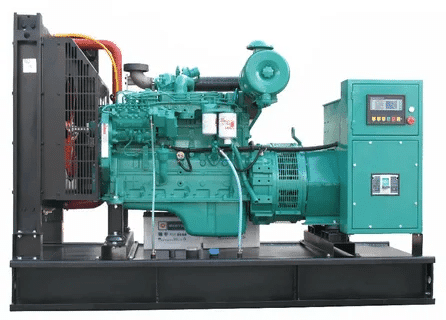
Professional Service Requirements
Maintenance must be carried out at every 6 months or 500-hour operation which ever arrives sooner. Profession maintenance services ought to encompass thorough check up to all large systems which include:
- Performance analysis of engines
- Test and inspection of electrical systems
- Inspection of cooling system
- Evaluation of the fuel system
- Verification of control systems
- Testing of the safety system
A well looked after diesel generator can serve you up to 50,000 hours. That is considerably longer than an average life, which indicates how unhealthy care can affect the life of an equipment so drastically and negatively.
Diesel vs. Other Generator Types: A Lifespan Comparison
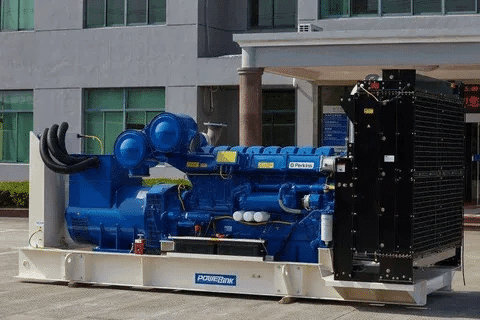
The average lifetime of diesel generators is far longer as compared to other types of generators. The first is because diesel generators are less complex in terms of mechanics as opposed to these others. And in addition, they operate on a RPM a lot lower than that of their natural gas/gasoline counterparts.
Diesel Generators: 20,000-30,000 hours (can be up to 50,000 with great maintenance) Natural Gas Generators: 2,000-3,000 hours limit Gasoline Generators: 2,000-3,000 hours limit
Such an incredible difference in lifespan immediately makes the diesel generators a very appealing choice to those that need a long time reliability and a low total cost ownership.
Maximizing Your Diesel Generator Investment
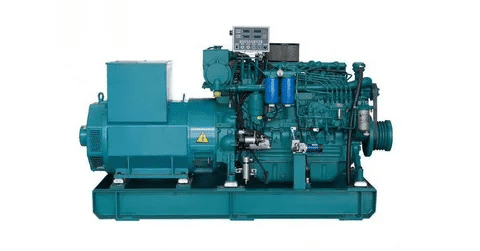
Load Management Strategies
Incorporating a good load management system will guarantee that your generator is working within best parameters in order to maximize its operational life span in a very efficient manner. An interesting idea will be to install load monitoring systems that assist in keeping the operators in the best loading conditions.
Preventive Maintenance Programs
Allowing yourself an extensive preventive maintenance plan and employing competent technicians will considerably help you to lengthen the life of your generator. Every maintenance work should be documented and the performance trend should be observed to indicate a problem which can be identified before it turns out to be an expensive repair.
Quality Fuel and Fluids
Having high quality diesel fuel, lubricants and coolants makes them wear and tear less on critical components. Poorly refined fuels become clogged and have other problems which have an adverse effect on performance and life-span.
Environmental Protection
To keep your generator safe, it is necessary to install suitable protection (tight enclosures and ventilation systems) to prevent adverse conditions of the environment and prevent excessive working loads. In extreme conditions, equipment life may be far increased by the use of climate-controlled environments.
Signs Your Generator May Be Nearing End of Life
Ability to recognise the early warning measures will enable you to plan how to replace or re-major overhauls helps before catastrophic failure can take place. Typical signs and symptoms are:
- More use of fuel
- Inability to start or to reach the stable operation
- Too much exhaust fumes
- Abnormal sounds or vibration
- Falling generation
- Frequent repairs needed
Cost-Benefit Analysis of Generator Lifespan
Total cost of ownership of your generator throughout its life also helps calculate what a subsequent maintenance cost is and whether or not a replacement is worth it. Take into consideration such factors as:
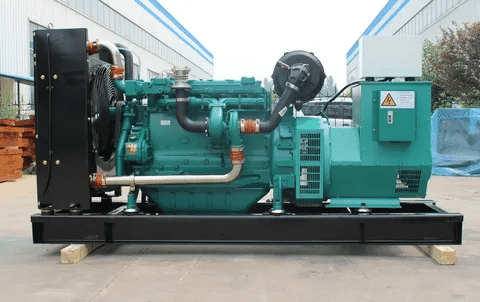
- First cost of purchasing
- Installation costs
- Costs of continuing maintenance
- Fuel consumption
- Repair costs
- Downtime costs
- Resale value
Industry Applications and Lifespan Expectations
The generator can last longer depending on which industry the required generator is needed:
Healthcare Facilities: Healthcare facilities necessitate utmost reliability and are usually proper in extreme maintenance programs to attain 25-30 years of life.
Data Centers: Require steady operation and are likely to engage in preventative replacement of the generators in order to eliminate the risk of downtime.
Manufacturing: Consider cost and reliability requisites and usually, it can yield 20-25 years life span with maintenance.
Construction: Temporary needs of the project may require constructions to consider lower initial cost over maximum lifetime.
Conclusion
Your diesel generator will live long as long as you take good care of it, as long as it is sized to its job and as long as it has the right usage patterning. A properly maintained diesel generator will produce 20,000-30,000 hours, or more, of service in an equivalent of decades. Through extensive maintenance schedules, adequate load management, and working within the manufacturer range, you would be able to get the best out of your generator to realize the best out of your investments.

